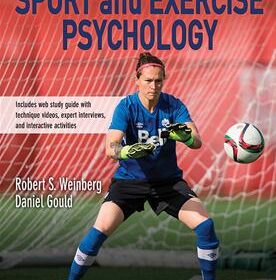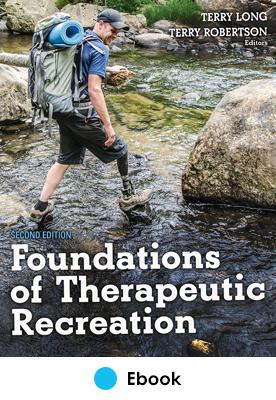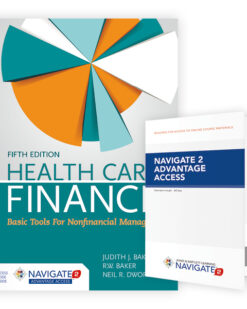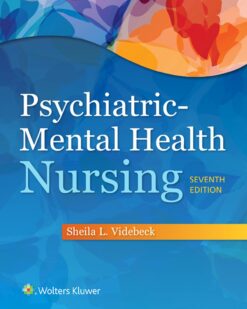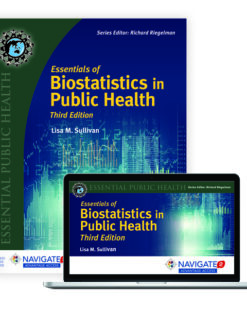Description
TABLE OF CONTENTS
Preface
Acknowledgments
Part I. Introduction to Therapeutic Recreation
Chapter 1. Considering Therapeutic Recreation as Your Profession
Terry Robertson, PhD, Northwest Missouri State University, and Terry Long, PhD, Northwest Missouri State University
What Is Therapeutic Recreation?
A Diverse Profession
Choosing a Profession
Summary
Chapter 2. History of Therapeutic Recreation
Rodney Dieser, PhD, University of Northern Iowa
Importance of History
Origins of the Therapeutic Recreation Profession (Late 1700s—Mid-1900s)
Philosophical Battles in Therapeutic Recreation (1945—1965)
The Utopian Years of Therapeutic Recreation (1966—1984)
The Fragmentation Years of Therapeutic Recreation (1985—Present)
Summary
Chapter 3. Professional Opportunities in Therapeutic Recreation
Michal Anne Lord, PhD, Texas Parks and Recreation Society
Characteristics of a Profession
Professional Preparation in Therapeutic Recreation
Professional Opportunities
Professional Organizations
Professional Networking
Summary
Chapter 4. Person-First Philosophy in Therapeutic Recreation
Mary Ann Devine, EdD, CTRS, Kent State University
Who Is the Person With a Disability?
Person-First Philosophy
Using Person-First Philosophy
Attitudes Toward People With Disabilities
Service Delivery
Summary
Chapter 5. Places, Models, and Modalities of Practice
Richard Williams, EdD, CTRS, East Carolina University
Settings
Practice Models
Therapeutic Recreation Treatment Modalities
Summary
Part II. Potential Areas of Practice
Chapter 6. The Therapeutic Recreation Process
Terry Long, PhD, Northwest Missouri State University
Assessment
Planning
Implementation
Evaluation
Summary
Chapter 7. Allied Professions
Frederick P. Green, PhD, University of Southern Mississippi, and Tanya E. McAdory, M.S., CTRS, CPRP, National Recreation and Park Association
Child Life Specialist
Art Therapy
Music Therapy
Dietetics
Kinesiotherapy
Athletic Training
Nursing
Occupational Therapy
Physical Therapy
Psychiatry
Psychology
Social Work
Speech–Language Pathology and Audiology
Summary
Chapter 8. Orthopedic and Neurological Impairment: From Rehabilitation to Community Reentry
Terry Long, PhD, Northwest Missouri State University and Terry Robertson, PhD, Northwest Missouri State University
Common Diagnostic Groups in Rehabilitation
Common Therapeutic Recreation Modalities in Rehabilitation
Best Practice Issues
Summary
Chapter 9. Therapeutic Recreation and Developmental Disabilities
Alice Foose, PhD, Northwest Missouri State University and Patricia Ardovino, PhD, CTRS, CPRP, University of Wisconsin at La Crosse
What Are Developmental Disabilities?
Practice Settings
Intellectual Impairment
Autism and Other Pervasive Developmental Disorders (PDD)
Cerebral Palsy
Spina Bifida
Duchene Muscular Dystrophy
Best Practices
Other Developmental Disabilities
Summary
Chapter 10. Therapeutic Recreation and Mental Health
Terry Long, PhD, Northwest Missouri State University
Components of a Healthy Mind
What Is a Mental Disorder?
Role of Therapeutic Recreation in Treating Mental Disorders
Levels of Care in Mental Health
Diagnostic Categories
Theoretical Considerations
Mental Health and Secondary Disabilities
Common Therapeutic Recreation Modalities for Mental Health
Summary
Chapter 11. Youth Development and Therapeutic Recreation
Sydney L. Sklar, PhD, CTRS, University of St. Francis, and Cari E. Autry, PhD, CTRS, Arizona State University
At-Risk Youth
Purpose of Therapeutic Recreation in Positive Youth Development
Theories That Guide Therapeutic Recreation Practice
Scope of Therapeutic Recreation Practice
Settings and Opportunities for Therapeutic Recreation
Special Concerns
Issues and Trends in Youth Development and Therapeutic Recreation
Summary
Chapter 12. Aging and the Life Span
Judith E. Voelkl, PhD, CTRS, Clemson University, and Begum Aybar-Damali, MS, Clemson University
Whom Do We Work With?
Theories of Successful Aging
Where Might We Work?
Long-Term Care Strategies
Summary
Part III. Trends in Therapeutic Recreation
Chapter 13. Wellness Through Physical Activity
Sheila Swann-Guerrero, CTRS, National Center on Physical Activity and Disability, and Chris Mackey, BS., CP, North Carolina Office on Disability and Health FPG Child Development Institute, University of North Carolina at Chapel Hill
Whom Do We Work With?
Where Are Such Programs Provided?
Defining Physical Activity
Disability and Inactivity
Considerations for Using Physical Activity in Therapeutic Recreation
Basics of Exercise and Disability
Components of Exercise
Accessibility
Disability-Specific Recommendations
Summary
Chapter 14. Demographics, Economics, Politics, and Legislation
John McGovern, JD, CTRS, Northern Suburban Special Recreation Association, Northbrook, Illinois
It’s All About Relationships!
Demographics of Disability
Economics of Disability and Therapeutic Recreation
Politics and Therapeutic Recreation
The Legislative Process and Therapeutic Recreation
Current Legislation and Therapeutic Recreation
Summary
Chapter 15. A Global Perspective of Therapeutic Recreation
David Howard, PhD, CTRS, Indiana State University, Rodney Dieser, PhD, University of Northern Iowa, Heewon Yang, PhD, CTRS, Southern Illinois University, Shane Pegg, PhD, Senior Lecturer, University of Queensland, Brisbane, Australia, and Julie Lammel, PhD, Lock Haven University
WHO, the ICF, and Implications for Therapeutic Recreation
Considering Therapeutic Recreation in Other Nations
Therapeutic Recreation in Canada
Therapeutic Recreation in South Korea
Therapeutic Recreation in Australia
Working as a CTRS in Switzerland
Summary
Chapter 16. Paradoxes in Leisure Services and Therapeutic Recreation
Jesse Dixon, PhD, San Diego State University
The Paradox of Confusing Leisure or Recreation With Achievement Behavior
The Paradox of Applying the Terms Leisure and Recreation With People Who Demonstrate an Inequity
The Paradox of Playful Assimilation Behavior and Adult Accommodation Behavior
The Paradox of Similar Motivations in the Context of Leisure and the Context of Achievement
The Paradox of Promoting the Quality of Leisure and Serving the Bottom Line of a Budget
The Paradox of Choice for Leisure and Achievement
The Paradox of Leisure as a Zero-Order Behavior
Summary
Chapter 17. Envisioning the Future: Therapeutic Recreation as a Profession
Terry Robertson, PhD, Northwest Missouri State University
Embracing Our History
Emergence of a Global Society
The Future of Therapeutic Recreation as a Profession
Finding the Optimal Perspective
Summary
Appendix A National Therapeutic Recreation Society Standards of Practice
Appendix B American Therapeutic Recreation Association Standards of Practice
Glossary
References
Index
About the Editors
About the Contributors
